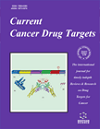
Full text loading...
We use cookies to track usage and preferences.I Understand

Gastrointestinal (GI) cancers represent some of the most common and lethal malignancies globally, underscoring the urgent need for improved diagnostic strategies. Traditional diagnostic methods, while effective to some degree, are often invasive and unsuitable for regular screenings.
This review article explores integrating machine learning (ML) with liquid biopsy techniques as a revolutionary approach to enhance the detection and monitoring of GI cancers. Liquid biopsies offer a non-invasive alternative for cancer detection through the analysis of circulating tumor DNA (ctDNA) and other biomarkers, which when combined with ML, can significantly improve diagnostic accuracy and patient outcomes.
We conducted a comprehensive review of recent advancements in liquid biopsy and ML, focusing on their synergistic potential in the early detection of GI cancers. The review addresses the application of next-generation sequencing and digital droplet PCR in enhancing the sensitivity and specificity of liquid biopsies.
Machine learning algorithms have demonstrated remarkable ability in navigating complex datasets and identifying diagnostically significant patterns in ctDNA and other circulating biomarkers. Innovations such as machine learning-enhanced “fragmentomics” and tomographic phase imaging flow cytometry illustrate significant strides in non-invasive cancer diagnostics, offering enhanced detection capabilities with high accuracy.
The integration of ML in liquid biopsy represents a transformative step in the early detection and personalized treatment of GI cancers. Future research should focus on overcoming current limitations, such as the heterogeneity of tumor-derived genetic materials and the standardization of liquid biopsy protocols, to fully realize the potential of this technology in clinical settings.

Article metrics loading...

Full text loading...
References


Data & Media loading...